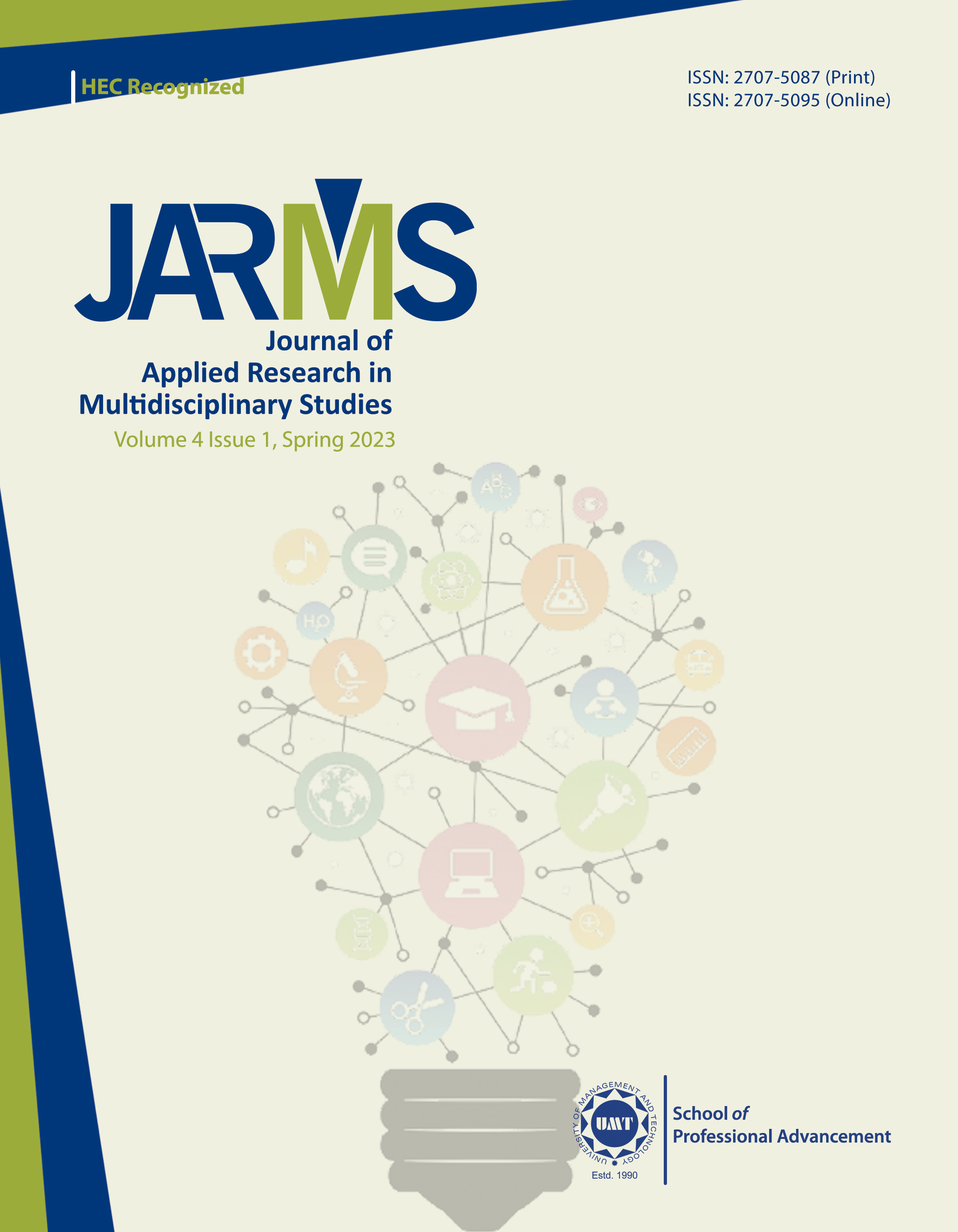Knowledge, Attitude, and Practice of Medical Students towards Evidence-Based Medicine in Private and Public Sector Medical Colleges of Peshawar, Pakistan
Abstract
 Abstract Views: 0
Abstract Views: 0
Evidence-based medicine (EBM) refers to a special and unique approach selected for an individual patient. It is prepared on the basis of patient’s current health condition, the latest available research, and clinical expertise. It starts with a clinical question at the level of care (for instance, nurse- patient encounter or physician-patient encounter). Afterwards, evidence is acquired by investigating the previous literature regarding the patient’ condition followed by the assessment of the quality of each evidence source. Subsequently, valid evidence is applied to patient’s treatment according to their preference. In order to identify the areas of improvement in the EBM implementation, medical students were surveyed in the city of Peshawar ,Pakistan regarding their knowledge and attitudes towards EBM practice. The current study followed a cross sectional research design which was carried out in two public medical colleges and two private medical colleges of Khyber Pakhtunkhwa (KPK). The duration of this study was 3 months from the time period July-October 2021. Random sampling was performed with the involvement of 286 participants. Inclusion criteria for the current study was fourth year and final year medical students. The data for the current study was gathered through a self-reported questionnaire. The characteristics of 286 participants showed that 44.76% (n=128) were males, while 55.24% (n=158) were females. The response rate was 100%. Out of all the respondents, 79.9% had an excellent knowledge of EBM. About 12.65 % reported excellent attitude towards EBM and only 6.3% had an excellent practice of EBM. The most common barrier that was identified was lack of time and lack of role modeling. The current study determined that females had a better attitude towards EBM than males (p value <0.5). Moreover, there was also a strong relationship between year of study of respondents and practice of EBM which was greater in final year students (p value <0.5). Although, majority of the medical students of KPK had an excellent knowledge of EBM, only 6.3% of them had an excellent practice. Excellent knowledge regarding EBM does not necessarily show excellent attitude either. Overall, 78.67% of the respondents did have a good attitude towards EBM. The lack of practice can be due to the fact that only 8.1% of respondents strongly agreed that they had a clear understanding of EBM, proving that they know about EBM, however, are not fully aware of what it is. EBM should be integrated into the curriculum of the students for its application and incentives should be offered for undergraduates to develop an interest in it.
Downloads
Copyright (c) 2023 Waqar Ali, Jazza Jamil, Muhammad Saud Sadiq, Mashhood Alam Khan, Abdur Rehman, Ali Arif Khan; Khushbakht Khalil

This work is licensed under a Creative Commons Attribution 4.0 International License.



